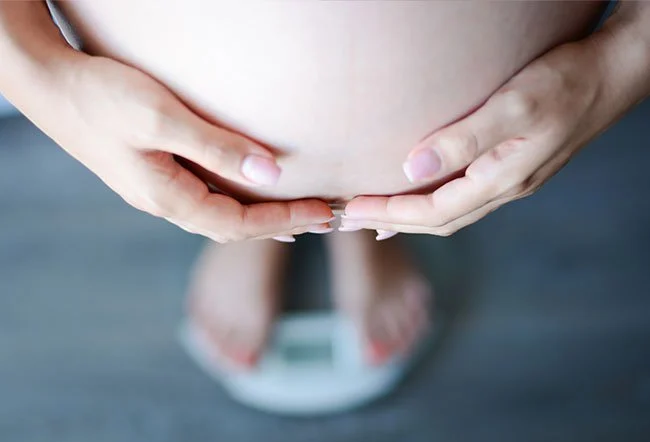Your Guide Through Early Pregnancy – The First Trimester
It is incredible how less observant women won’t know they are pregnant until months later when they are almost past the first trimester. Those with quicker body responses, however, will notice even the most subtle changes. The first trimester is the most delicate because this is when the baby has just started growing, and any irregularity may put them in danger. Here’s all you need to know about it, and tips to help you take care of yourself when pregnant:
SYMPTOMS
The first thirteen weeks of pregnancy from the first trimester. Many women won’t know they are pregnant until towards the end of it because there aren’t that many body changes. Some of the symptoms you may experience include:
- Weight gain – you may gain a few pounds as the baby starts to develop. You may notice significant improvement in your appetite. Some women lose weight due to loss of appetite. Others don’t change much. Significant weight changes don’t come about until the second or third trimester.
- Morning sickness – You will be hit by bouts of nausea and not just in the morning. If you find it alarming, get in touch with your doctor for advice or prescription to reduce it.
- Breast tenderness – By the sixth week of pregnancy, you will notice a significant increase in the size of your breasts. They may also become tender, especially around the nipples.
- Mood swings – Due to the rush of hormones in preparation for the baby’s development, you may go through a series of mood swings, similar to those experienced in pre-menstrual syndrome. If you feel continuously depressed or anxious, seek advice from your doctor.

THE BABY’S DEVELOPMENT
Here are some of the developments the baby undergoes in the first trimester:
- Digestive system – At the beginning of the third month, your baby’s digestive system will start forming. Their intestines will start developing alongside the kidneys.
- Bones – By the sixth week, the baby’s arms, hands, feet and legs will start forming. The fingers and toes don’t start developing until around the tenth to eleventh weeks.
- Brain – At the eighth week of pregnancy, the baby’s brain will start forming. It won’t be long before it can send messages to wiggle the developing arms and feet.
- Heart – The baby’s heart starts to take shape at around the fifth week, but it won’t be until the tenth to the twelfth week when you can hear the heartbeat.
- Hair and Nails – The baby’s skin starts forming between the fifth to eighth week of pregnancy. At around the tenth week, the nail beds start forming, and the baby’s nails start growing slowly.
THINGS TO DO
Some things you can do to ensure healthy baby development include:
- Eating well – You need to make sure that you are eating a well-balanced meal, including all the necessary vitamins and nutrients. Cut off processed foods and focus on organic meals. These are the richest sources of nutrition for both you and the baby.
- Pre-natal check-ups – As soon as you realize that you are pregnant, see your doctor. They will give a check-up to make sure that the baby is developing well. They can then create a check-up schedule and recommend any supplements or change in your lifestyle. Pre-natal check-ups help to make sure that the baby is growing as they should be, and it also helps identify any problems early enough to treat them.
- Start planning for the baby – If your pregnancy came as a surprise, now would be a good time to start thinking about delivery and afterwards. Check your insurance to make sure that your birth is covered. Start saving for the baby’s needs such as diapers and nappy backpacks, and make a birth plan when you and your partner agree on one.
- Lifestyle changes – With a baby growing in your womb, it would be necessary that you consider making some changes in your lifestyle so they can be born healthy with no complications. For instance, you should stop drinking, smoking and using any drugs that may put the baby’s life in danger.
- Exercise – It would be nice to get some exercise. It prevents dangerous weight gain and ensures proper circulation, which nourishes the baby.
- Hydration – Drink as much water as you can to avoid dehydration. It will nourish you and the baby, help regulate your temperature, provide the amniotic fluid required for the healthy development of the baby and keep you in good shape.
WHEN TO SEE A DOCTOR
Apart from your check-ups or for consultation, there usually wouldn’t be any concerns that need you to see the doctor in the first trimester. If you experience any of these signs, however, make a point of seeing one as soon as possible:
- Severe pain in the abdomen including cramping and stomach aches
- Heavy bleeding from the vagina
- High fevers
- Unusual back-aches
- Severe exhaustion
- Poor eyesight or blurred vision
- Puffiness in the hands or feet
- Painful urination
- Any other unusual symptoms that may concern you
In conclusion, the first trimester is very delicate and requires as much care as possible. The baby is starting to develop some of their most vital organs. You need to eat well, stay hydrated, exercise and stay away from toxic foods or drinks that may harm the baby. Don’t skip your appointments with the Ob-Gyn and start making plans for the birth of the baby. Above all, watch your emotional health and get all the support you need.